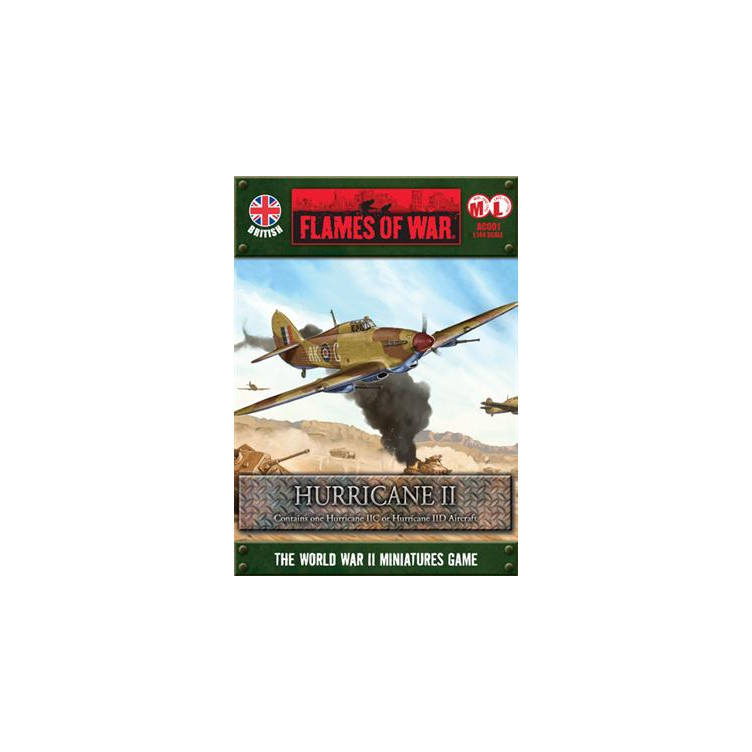



The Hurricane was the first monoplane fighter to serve with Royal Air Force. It was designed by a team under Sydney Camm and was a logical progression from the Fury biplane. Its first flight was on November 6, 1935.
Hurricane II saw the introduction of a two-speed, single-stage supercharged 1,390 hp Merlin XX engine. Deliveries to the RAF began early in September 1940. The new Hurricane retained the same eight-gun wing as the Mk I.
It was however fitted with a strengthened fuselage able to accept the modified wing with later armament options. Hawker introduced the universal wing with the Hurricane IIB that could take an assortment of armament and the Hurricane IIC (first flown February 6, 1941) was able to mount four 20mm Hispano cannons.
All the Hurricanes fitted with the universal wing could have tropical filters for service in the Middle and Far East, and could carry two 44 Imp gal (200-1iter) drop tanks, 88 Imp gal (400-1) ferry tanks, two 250 Ib (113.5 kg) or (later aircraft) 500 Ib (227 kg) bombs.
The Hurricane IID was armed with two 40mm Vickers Type S cannon (and two Browning machine guns).
Service use of Hurricane IIB fighter-bomber (’Hurribomber’) began in May 1941, the IIC in April 1941, and IID in March 1942. By November 1941, 25 Hawker Hurricane squadrons were based in the Middle East.
Hawker Hurricane II production in the UK totalled 8,676 (451 Mk IIA, 2,948 Mk IIB, 4,711 Mk IIC, 296 Mk IID and 270 Mk HE, plus 100 Mk Is converted by Rolls-Royce to Mk IIA).
The Hurricane was the first monoplane fighter to serve with Royal Air Force. It was designed by a team under Sydney Camm and was a logical progression from the Fury biplane. Its first fligh...